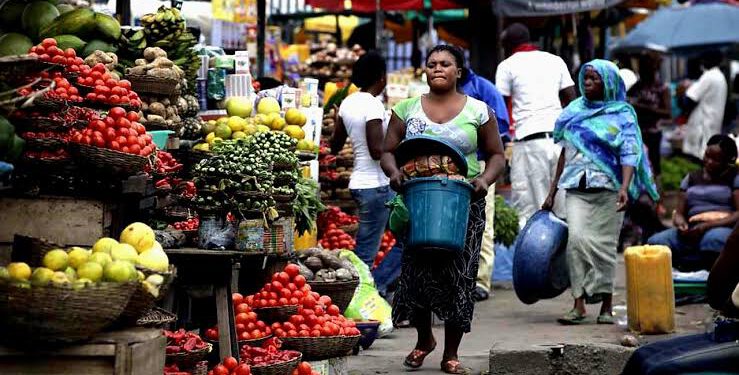The National Bureau of Statistics (NBS) has reported a drop in Nigeria’s inflation rate to 23.18% in February, down from 24.48% in January.
In its February 2025 Consumer Price Index (CPI) report released on Monday, the NBS stated that the headline inflation rate in February declined by 1.30 percentage points compared to the previous month.
“February 2025 saw a moderation in the headline inflation rate to 23.18%, compared to 24.48% recorded in January 2025,” the report noted.
On a year-on-year basis, inflation was 8.52 percentage points lower than the 31.70% recorded in February 2024. The NBS attributed this decline to a shift in the base year used for calculations (November 2009 = 100).
Meanwhile, the month-on-month inflation rate stood at 2.04% in February 2025.
Food Inflation Drops to 23.5%
The report also revealed that food inflation eased to 23.51% in February 2025, a decline from 26.08% in January. This figure represents a significant drop of 14.41 percentage points compared to the 37.92% recorded in February 2024.
“The notable decrease in food inflation is largely due to the change in the base year,” the NBS explained. “On a month-on-month basis, food inflation was 1.67% in February 2025.”
The bureau further observed a decline in the average prices of key food items, including yam tubers, potatoes, soybeans, maize flour, cassava, and dried Bambara beans.
Over the past 12 months, the average annual food inflation rate stood at 34.74%, an increase of 4.67 percentage points from 30.07% in February 2024.
State-by-State Analysis
According to the report, Edo recorded the highest food inflation on a year-on-year basis at 33.59%, followed by Enugu (30.72%) and Sokoto (30.19%).
Conversely, Kaduna (15.45%), Akwa Ibom (15.53%), and Plateau (15.74%) experienced the slowest rise in food inflation.
On a month-on-month basis, food inflation was highest in Sokoto (11.98%), Kogi (11.38%), and Edo (8.87%). In contrast, Kaduna (-8.83%), Ondo (-4.78%), and Plateau (-3.73%) saw a decline in food inflation.





















